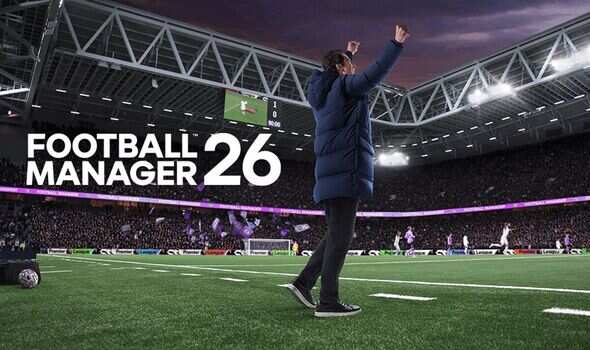Tens of hours into the new Football Manager 26 and it's safe to say I've drawn a few conclusions. Yes, it may not have the razor sharp UI that made gamers fall in love with the franchise, but the gameplay is still as satisfyingly challenging as ever.
Following the disappointing cancellation of FM25 last year, and the buzzing excitement in the lead-up to this iteration, gamers were expecting major changes, and Sports Interactive duly delivered. Some things have been removed, new additions are aplenty, and the whole interface is far more complex to navigate. With FM26 launching on consoles and PC, I've made it my mission to give you some of the most important lessons I have learnt from my time with the game, from early access to the full release.
Perhaps the boldest and most controversial change of this year's Football Manager is the completely different user interface (UI).
Gone are the days of the traditional side bar, which has been replaced by something simplified and full of pop-up windows.
This means you will likely spend most of your first few hours of the game trying to understand where everything is.
So my best advice is to give yourself a good amount of time to go through all of the menus and acquaint yourself with how to view your revenues, player stats, calendar, scouting and more.
Bookmarks can certainly help with that. If you look at the top right of your screen, you will see a number of small icons, giving you quick and instantaneous navigation to all of the important stuff.
And if you feel like you are using a section regularly that isn't included - like managing your staff, for example - you can add it to your bookmark bar to save time.
Sports Interactive has spent a lot of time with tactics for FM26. This is obvious as soon as you click on the tab and start putting your own stamp on the team.
There are separate settings for when your team has the ball, known as In Possession Tactics, and when they don't have the ball, called Out of Possession Tactics.
This makes it a far more complex process. For the gurus among you, this is probably the kind of thing that convinced you to buy the game.
Along with the added options in player instructions, set-pieces and such, this means you have all the freedom in the world to make your team play whichever way you want them to.
Understandably, this brings about its own challenges, because as any Football Manager fan knows, this doesn't necessarily guarantee that you'll win games of football.
So my advice is to use pre-season in FM26 as a tool to discover what works and what doesn't before the competitive season starts.

A manager who scrimps and saves when it comes to player recruitment is one that is admired at board level, and if you want to keep your job for as long as possible - and sign great players for less - then heed this advice.
For as long as I have played Football Manager, I have always negotiated my life for transfer deals. On the face of it, it may say I have signed Toulouse's promising 20-year-old goalkeeper Guillaume Restes for £30 million, but if you look at the deal more closely, I'm only actually spending around £15 million.
Yes, you read that right. When sorting a transfer, if a club is asking for a set fee - no questions asked - get there by offering around 40% up front, before promising the rest in instalments, conditions and bonuses. And remember, a sell-on clause can further sweeten the deal.
By using these transfer strategies, players can use more of the club's money elsewhere, or perhaps keep it handy and improve your relationship with the Chairman.
Staying with transfers, my whole aim when playing Football Manager is to sign young players for less, and sell them on for huge fees later.
That's where wonderkids come in. Wonderkids are classified as players with high potential ability who are typically no older than 20-years-old by July 3, 2025 (before the start of pre-season in England).
They are normally your first port of call in the transfer window. Bring them in, grow them, and then they can either fire you to the sports' most prestigious of honours, or you sell them on for a hefty profit.
Here are just a few of my favourites so far: Aleksey Batrakov (AM, Lokomotiv Moscow), Rome-Jayden Owusu-Oduro (GK, AZ Alkmaar), Andres Chema (DM, VfB Stuttgart), and Metteo Palma (CB, Udinese) among others.
This is especially helpful when you're at a club with little to no transfer money. For an added boost to your transfer kitty, head to your transfer clauses by clicking on Recruitment and then Clauses.
This will show you a number of deals the team has done previously, both in and out, that have existing clauses yet to be paid out.
Some deals may have a 'buy-out' negotiated, which gives you the opportunity to cash-in early, with the money going directly to your transfer budget.
Sounds obvious, but this is something that can be easily forgotten when you're hours deep into a stressful yet enjoyable Football Manager session.
When you start, it's likely you don't have auto-save enabled, which is something that can turn your dream tenure into a nightmare.
As Sports Interactive explains on its official website: "Powercuts happen, batteries run out of...battery. Setting up an auto-save routine takes two seconds and is something we recommend doing."
Just head to Preferences where you can select how often you want your game to automatically save, and whether you want this to be done to a single file, or have multiple 'rolling' files.